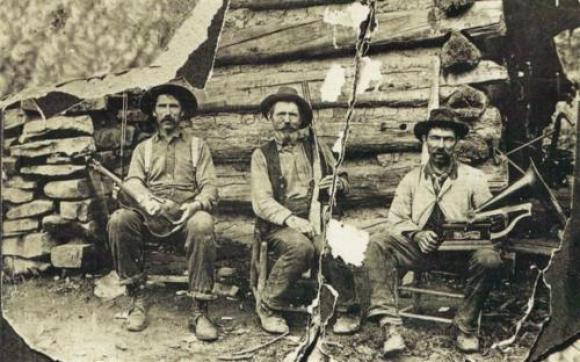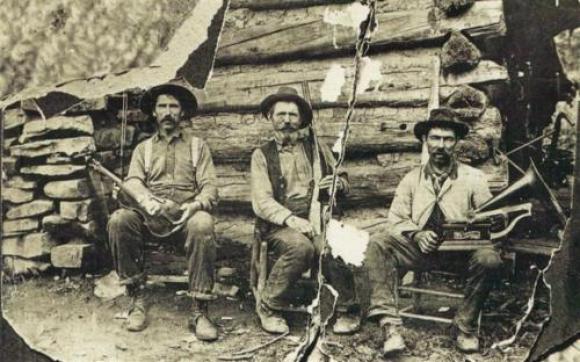For as long as people have been writing about Southern character—and that’s getting to be a pretty long time now—they’ve been inclined to mention Southern individualism. From Thomas Jefferson’s letter to the Marquis de Chastellux to Charlie Daniels’ “Long-haired Country Boy,” Southerners have been inclined to mention or exemplify this trait themselves. W.J. Cash has probably discussed it most thoroughly, in The Mind of the South. He did not entirely (or even mostly) approve, but his description, strikes me as right on the money.
Things might have been different if history had given George Fitzhugh a few more decades to work on the ideas he was developing in Cannibals All! and Sociology for the South —might have been, but I doubt it. To the extent that Southerners bought Fitzhugh’s anti-individualist philosophy in the 1850s, I suspect it was because it gave them an elegant rationale for holding onto their private property (i.e., their slaves). Certainly the variety of pro-slavery thought that took off from Jeffersonian—and therefore individualistic— premises was more influential, if less interesting to the intellectual historian.
George Pullen Jackson, in his book White Spirituals in the Southern Uplands, gives us something that can stand as a sort of parable for how Southern individualism works. He introduces us to the verb “to Southernize,” and shows that it was current in the nineteenth century. Many of the Southern gospel songs he studied had their origins, he shows, in the North. But, when they were reprinted for use in the South, the arrangements were often changed—”Southernized.” Often the publication indicated who did it: “Southernized by John Doe.”
What this meant was that each of the non-melody parts was made more complicated, and more interesting. The bass, for instance, instead of droning away on three or four notes as the New England version had him doing, was given something like a different melody of his own to play around with down under the melody proper. The same was done for the other back-up parts: none was entirely subordinate; none was boring. Everyone got to show off sometime.
Jackson points out that this often worked to the detriment of the ensemble. It was less harmonious, more chaotic than the original, un-Southernized version. But after all— these people were not singing for an audience. They were singing for themselves and for the glory of God. If someone wanted to sing with them, instead of standing aside and finding fault with the harmony, he would soon realize that the Southern way was more fun for the singers, whatever impression it might make on observers.
The point, I should think, is obvious enough. The Southern way in many things has been to make allowances for individuals. Nothing can make a bass into a tenor, but that does not mean he can’t do something interesting. There has never been a shortage of critics to point out that this arrangement is, really, sort of messy; that it could be made more pleasant for the audience with a little more coordination, some regulation here and there, some small sacrifices of individuality on the part of the subordinate choristers. But Southerners just will not see their parts as subordinate. If it comes to that, we’d just as soon not sing at all. And if our critics knew as much about singing as they claim to know about music, Southerners feel, they would see why Southernizing is something the whole country could use more of.







